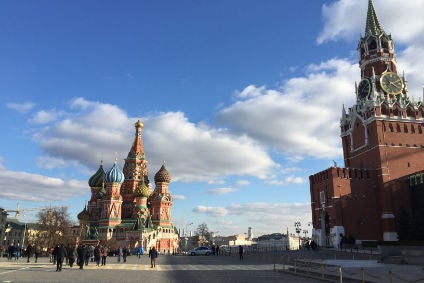
Volkswagen Group Rus says it is looking to up its involvement with domestic suppliers as the industry continues to face huge challenges.
From being once touted as potentially Europe’s largest market and even overtaking the powerhouse of Germany, Russia has endured more than a year of consistently falling sales leading The Kremlin to step in with a RUB50bn (US$729m) incentive package for the industry.

Discover B2B Marketing That Performs
Combine business intelligence and editorial excellence to reach engaged professionals across 36 leading media platforms.
“Everywhere we see drops, maybe stabilising in 2016,” Volkswagen Group Rus procurement director, Patrick Husemann told delegates at this week’s Russian Automotive Forum (RAF) organised by Adam Smith Conferences in Moscow.
“We see staff reduction, sales volume going down. We see crisis everywhere in Russia. Some years ago there were big dreams. I [remember] the headlines where Russia was supposed to be the biggest car market in Europe, overtaking Germany.
“Some are even thinking about 1.2m [vehicles] this year, which is really a sad figure. What is amazing, especially in times of crisis, we have invested to open our brand new engine plant in Kaluga [although] this plant is not unfortunately fully utilised.
“We collaborate in Russia with more than 60 suppliers. Most of them were international suppliers from worldwide that joined us when we came to Russia, but now we are starting more and more to collaborate with pure, local suppliers.
“We will now increase collaboration with Russian native companies such as steelmakers. From the purchasing side, we really try to localise a very high ratio of our parts.”
However, imported parts are paid in euros and with the current weak state of the ruble, this is reflected in the resulting increasing price of components in Russian cars, although poor consumer buying power means this cannot be passed on in the eventual car cost.
“We were looking at our local cases again and again and we could find some opportunities,” added Husemann. “I think for the Russian automotive industry in this crisis [there are] some opportunities because even in this situation, there could be a win win.
“We have to increase local value creation, local suppliers can offer cost advantages.”
The Volkswagen Group Rus procurement director noted however, tooling is still imported. “There is for us, almost no local toolmaker,” he said.






